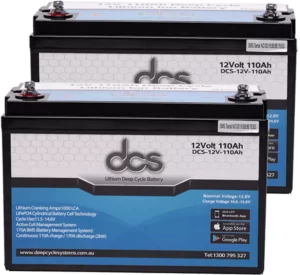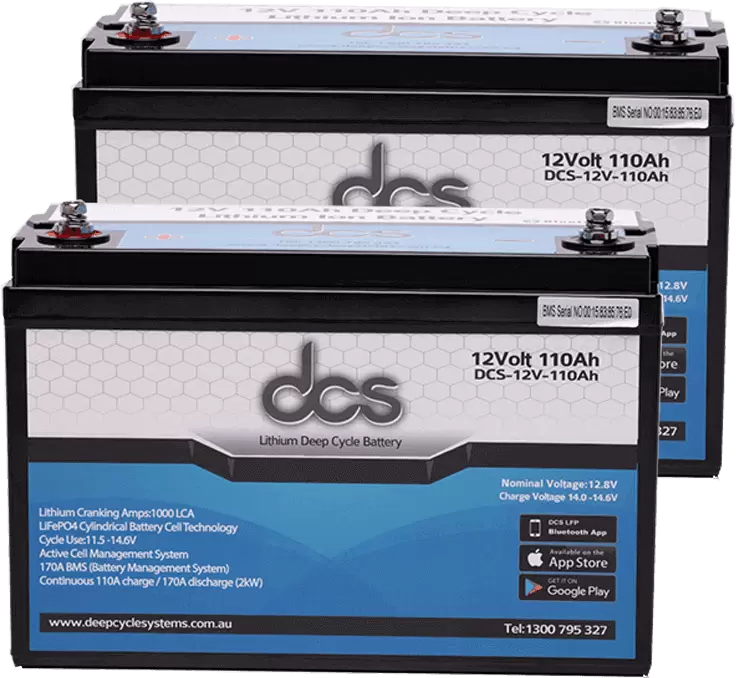Say goodbye to the days of relying on gasoline for our vehicles! With the advancement of lithium car batteries, how we power our vehicles is changing forever. Lithium car batteries are lightweight and long-lasting, making them the perfect option for powering vehicles. In this blog post, we’ll discuss the potential of Lithium Car Battery and how they can revolutionize our thoughts about mobility. From electric cars to bikes, scooters, and more, the power of lithium car batteries is boundless. Get ready to join the revolution and say goodbye to gasoline.
Environmental Benefits: The Impact of Lithium Car Battery
With climate change at the forefront of global concerns, transitioning to clean energy solutions has become more critical. Using fossil fuels has contributed significantly to the current climate crisis, but with technological advancements, alternatives like the Lithium Car Battery have emerged as a viable solution.
The environmental benefits of lithium car batteries are numerous. First, they produce zero emissions, making them a clean energy solution for transportation. It is essential to consider that the transportation sector is one of the biggest contributors to global carbon emissions.
 In addition, lithium car batteries require fewer resources and materials than traditional lead-acid batteries, which are commonly used in combustion engines. These batteries can also be recycled and reused, reducing their environmental impact.
In addition, lithium car batteries require fewer resources and materials than traditional lead-acid batteries, which are commonly used in combustion engines. These batteries can also be recycled and reused, reducing their environmental impact.
Moreover, using lithium car batteries in electric vehicles eliminates the need for gasoline, reducing reliance on oil. It significantly reduces air pollution, improving the air quality in cities and other areas.
Overall, the impact of lithium car batteries on the environment cannot be understated. With the ongoing shift towards clean energy, lithium car batteries are paving the way for a sustainable future where clean transportation is the norm.
Why Lithium?
Lithium is a highly reactive metal with a low atomic weight, making it an ideal material for batteries. It is also the lightest of all metals, which means that lithium-ion batteries can be incredibly lightweight while still being able to store a large amount of energy. In addition, lithium-ion batteries are very efficient and can be recharged many times without losing their capacity, which is an essential feature for electric cars.
Another key advantage of lithium-ion batteries is their long lifespan. They can last up to 10 years, depending on how well they are maintained, which means they can be used in cars for a very long time before replacing them. It makes them a more cost-effective option in the long run than traditional lead-acid batteries requiring frequent replacement.
Finally, lithium-ion batteries are much more environmentally friendly than traditional batteries. They do not contain toxic materials such as lead or cadmium, which can cause serious health and environmental problems when discarded. Lithium-ion batteries can be recycled, and the materials used in manufacture can be reused.
Overall, the unique properties of lithium make it an ideal material for car batteries, offering significant benefits over traditional battery types. As electric cars continue to become more prevalent on our roads, lithium-ion batteries are vital in revolutionizing how we think about mobility and energy consumption.
Efficiency and Performance: Advantages of Lithium Car Batteries
Lithium car batteries are the new revolution in the automotive industry. One of the major advantages of using a lithium-car battery is its high energy density. It can store more energy in a smaller and lighter package than traditional lead-acid batteries. This feature enables a vehicle to travel farther on a single charge than a car with a lead-acid battery, making it more efficient and cost-effective.
Moreover, lithium car batteries have a longer lifespan than lead-acid batteries, which usually last 3-4 years. In contrast, a well-maintained lithium-car battery can last up to 10 years. This feature translates to fewer replacements and less environmental waste.
Another advantage of a lithium-car battery is its ability to discharge and charge more quickly, resulting in a faster and more efficient power supply. Additionally, they have a higher charge retention rate and can handle deeper discharges without damaging the battery.
Lithium car batteries are also lightweight, which means they can contribute to the overall weight reduction of a vehicle. A lighter vehicle can achieve better acceleration, speed, and handling, improving the driving experience.
Lithium Car Batteries and Electric Vehicles
The adoption of electric vehicles (EVs) has increased in recent years. While EVs have been around for a while, the technological advancements in batteries make them a more practical choice for many drivers. Lithium car batteries, in particular, have emerged as the leading battery technology for EVs thanks to their superior performance and efficiency.
Lithium car batteries offer longer driving ranges and faster charging times than traditional lead-acid batteries. Lithium batteries can store more energy in the same space, making them smaller and lighter, making the vehicle more efficient. Additionally, they can be charged more times before their lifespan expires, making them an economical choice in the long run.
While EVs with lithium car batteries are already on the market, researchers continue developing even better and cheaper versions. Advancements in battery chemistry and manufacturing processes have created more powerful, compact, and safer batteries that will allow for the widespread adoption of EVs.
But there are challenges. Despite the significant improvements in lithium car batteries, there is still work to be done in developing EV charging infrastructure to ensure they become a practical choice for consumers. Furthermore, battery technology research must address the cost issue to ensure lithium batteries are accessible and affordable for the mass market.
Overcoming Challenges
The switch to lithium car batteries has its challenges. While the technology is impressive, it still has a few kinks that need to be ironed out.
One of the most significant challenges is the cost. Lithium is an expensive material, which drives up the battery’s cost. However, with time, as the demand for lithium batteries continues to grow, the cost is likely to reduce, making it a more affordable option.
Another challenge is the issue of range anxiety. Lithium batteries still have a limited range, and electric car drivers often find themselves needing to stop and recharge frequently. It is especially true for long road trips. However, this is slowly improving as lithium batteries become more efficient and charging infrastructure is developed to support them.
Finally, there is the challenge of disposing of lithium batteries. While they have a longer lifespan than traditional lead-acid batteries, they must be disposed of properly to avoid environmental damage. Recycling programs for lithium batteries are slowly being developed, but there is still work to ensure that they are disposed of in an environmentally-friendly way.
Economic Implications
While the benefits of lithium car batteries on the environment and performance are clear, there are also economic implications that come with the transition to this technology.
Firstly, the production of lithium car batteries is still relatively expensive compared to traditional gasoline engines. It has resulted in higher costs for electric vehicles, which has hindered their adoption. However, as demand for electric vehicles continues to grow and more automakers enter the market, economies of scale are expected to bring down production costs and ultimately result in more affordable electric cars.
Secondly, the shift to electric vehicles also impacts the oil industry. As demand for gasoline decreases, the need for oil drilling and production may decline. It could impact oil prices and countries’ economies heavily reliant on oil exports.
On the other hand, the production of lithium car batteries could create new job opportunities and stimulate economic growth in battery production and electric vehicle manufacturing industries.
Factors to Consider Buying Lithium Camping Battery
Camping is a great way to get in touch with nature, explore the great outdoors, and enjoy some time away from the hustle and bustle of everyday life. Whether you’re a seasoned camper or a newbie, you need to ensure a reliable power source to keep your devices charged. And that’s where lithium camping batteries come in.
Lithium camping batteries are a great option for camping enthusiasts. They are compact, lightweight, and powerful, providing long-lasting energy for all your devices. However, before purchasing a lithium camping battery, there are some essential factors to consider to ensure that you get the right one for your needs.
- Capacity: The capacity of a battery is one of the essential factors to consider when buying a lithium-camping battery. Choosing a battery with a capacity that matches your energy needs is essential. You want to stay supplied in the middle of your camping trip, so choosing a battery that can last for as long as you need it to is crucial.
- Size and Weight: Another important factor to consider is the size and weight of the battery. A lightweight and compact battery is always a good choice for camping as it is easy to carry around and won’t take up much space in your backpack.
- Charging Time: You’ll want to ensure that your lithium-camping battery charges quickly so you can return to your adventure as soon as possible. Look for a battery with a fast charging time so you don’t have to wait too long to get your devices back up and running.
- Durability: Regarding camping gear, durability is key. It would help if you had a battery that can withstand harsh weather conditions and other environmental factors that come with camping. A battery with a rugged design and a strong exterior is ideal for camping as it will last longer and give you peace of mind.
- Price: Lastly, you need to consider the price of the battery. Lithium batteries can be expensive, but the cost can be justified by the long-term benefits and reliability they offer. However, make sure to choose a battery that is within your budget.
Conclusion
The lithium-car battery has been a game-changer in the automotive industry, revolutionizing mobility and paving the way for more sustainable transportation. Lithium car batteries’ benefits are evident in environmental impact, efficiency, and performance.
| Other Good Articles to Read |
| Skank Blogs |
| Unreal Blogs |
| Tba Blogs |
| All City Forums |
| Dany Blogs |
| Refuge Blogs |
| The Music Blogs |
| Key Forums |
| The Big Blog Theory |
| Joe Blogs |
| Blogs 4 Me |
| Blogs Emon |



